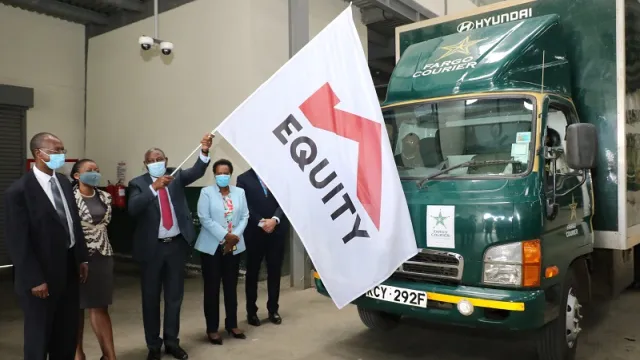As the pandemic gathers pace, philanthropy is shining a ray of hope

As the pandemic gathers pace, philanthropy is shining a ray of hope
Gauging how badly the coronavirus has damaged the economy is tricky. Its fury has resulted in deaths, devastated markets and government budgets, and led to massive unemployment.
The country is now adding over 400 cases per day. These numbers are alarming because they are grave underestimates considering that developing countries like Kenya tend to conduct fewer tests than most developed nations.
But as the virus rages on, the odds of defeating it have dramatically improved thanks to a collaborative approach adopted by the government, the private sector and individual philanthropists - to initiate a forceful and convincing response to the threats posed.
Dr. James Mwangi, Equity Group’s MD & CEO, reckons that to overcome this global pandemic, partnerships with the government plus individual commitments to the set of protocols laid out by health experts will be paramount.
Dr. Mwangi is an illustrious example of an individual who has selflessly put both his family resources and professional assets in service for the betterment of the people.
In Kenya, Equity’s parent home, his family is recognized for having given a private donation of Ksh 300 million that will directly be used to provide Personal Protective Equipment (PPE) to frontline medical staff dealing with COVID-19 patients in public hospitals in Kenya. This was part of the Kshs 1.1 Billion that was donated by Mastercard Foundation and Equity Bank to the National COVID Fund.
In Uganda, where Equity bank operates 38 branches, the Bank contributed 2 brand new Toyota double cabin pickups valued at about UGX 400 Million and Personal Protective Equipment (PPE) worth UGX 100 Million to the COVID -19 Response National Response Task Force.
This contribution comprised of 1 brand new Toyota double cabin pickup from the Bank, a similar one from the family of Dr. James Mwangi, the Group Managing Director and CEO of Equity Group Holdings and PPE worth UGX 100 Million donated by the staff of Equity Bank Uganda from their salaries.
In Rwanda, the family of Dr. James Mwangi contributed 22,225 testing kits worth Rwf1 billion to the Government of Rwanda in support of their national efforts to combat COVID-19 pandemic.

These encouraging acts of philanthropy and selflessness offer a shining ray of hope and a confirmation of deeper rooted patriotism before we even begin to think about the dilemma ahead.
There’s also the case of responsible business where Equity bank has courageously pivoted its position to support its country(s) and a continent under threat of a global pandemic, even though it means that profits might take a hit in the short term and loan loss provisions could be higher.
Last month, Equity withdrew its plan to issue Kshs 9.4 billion in dividends - citing the need to conserve cash aimed at cushioning customers and shareholders in the fight against a persuasive pandemic.
Even though this noble initiative has led some investors to question the lender’s ability to pay dividends, there's hardly any risk of any long term crisis considering that the Bank is well-capitalized and admirably profitable. Last year alone Equity’s Return on Equities (ROE) was a handsome 21.8%.
Of the many endeavours undertaken to fight COVID-19, the cushioning of its customers and provision of easier credit conditions for its SMEs is its most substantial one. Borrowers squeezed hard by the pandemic have the opportunity to engage the Bank if they require accommodation or term extensions.
At a period when the pandemic has delivered a brutal reverse of fortunes for many individuals and small businesses, the Bank set up Digital processing of short term personal and microloans as well as credit cards on mobile and via internet.
In a partnership with the Mastercard Foundation that is expected to gobble up nearly USD 2 million, the lender also pledged to equip nearly 15,000 needy students under its Wings to Fly program with tools to enable them study at home during this lockdown period.
The students will be provided with solar-powered devices to ensure continued access to their lessons currently being aired on government-owned radio and TV stations, and monthly stipends for June up to August.
The ultimate impact of the virus is still impossible to quantify, and while it may take ages to stop it dead in its tracks, what Equity and philanthropists like Dr. Mwangi have demonstrated is that it’s possible for societies to survive and adapt to catastrophes one step at a time.



